Search Images
Browse Content (p. 1686)

Image
Head of Senusret III
Granite head from a sphinx of the Egyptian pharaoh Senusret III with youthful features. Egypt. Middle Kingdom, 12th Dynasty, 1870 BCE. (State Museum of Egyptian Art, Munich, Germany).
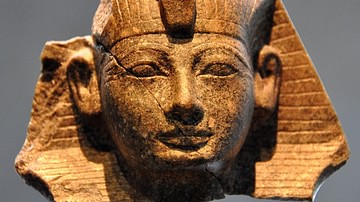
Image
Head of Amenhotep II
Granodiorite head of a sphinx of the Egyptian pharaoh Amenhotep II. From the cachette of Karnak temples, Egypt. New Kingdom, 18th Dynasty, 1420 BCE. (State Museum of Egyptian Art, Munich, Germany).
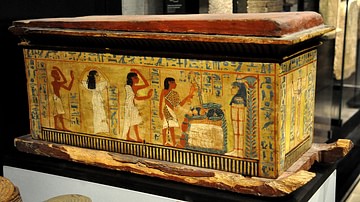
Image
Egyptian Child's Coffin
Coffin of a young child named Nefretiri. New Kingdom of Egypt, 19th Dynasty, 1220 BCE.
State Museum of Egyptian Art, Munich.
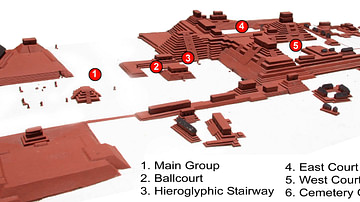
Image
Copan Site Plan
A reconstructed site plan of the Classic Maya centre of Copán in modern Honduras.
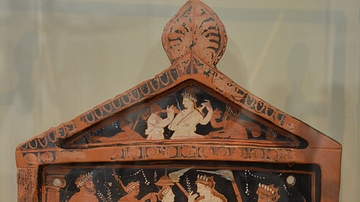
Image
Eleusinian Votive Plaque
Terracotta votive plaque dedicated by Ninnion to the two great goddesses of Eleusis (Demeter and Persephone). Middle of 4th century BCE. (Archaeological Museum of Athens, Greece)
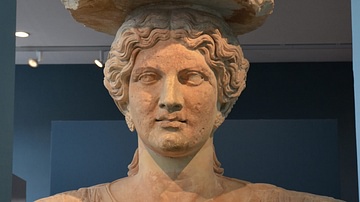
Image
Caryatid from Eleusis
The upper part of one of the caryatids that flanked the Lesser Propylaea of the sanctuary of Demeter and Kore at Eleusis. The caryatid was made in Attica in about 50 BCE. (Eleusis Museum, Greece)
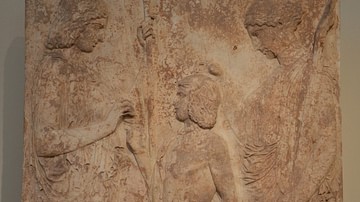
Image
Eleusinian votive relief
This is the largest and most important votive relief found at Eleusis. It represents the Eleusinian deities in a scene of mysterious rituel. On the left Demeter, clad in a peplos and holding a scepter in her left hand, offers ears of wheat...
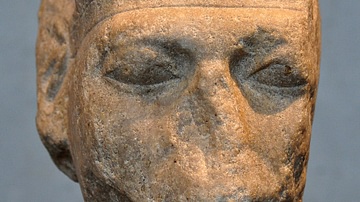
Image
Pharaoh Senusret III
Quartzite head of the Egyptian pharaoh Senusret III (aka Sesostris III) with aged features. Middle Kingdom, 12th Dynasty, 1850 BCE. (State Museum of Egyptian Art, Munich, Germany).

Image
Horus Statuette
In this silver statue, Horus wearing the double crown. Egypt, 27th Dynasty, circa 500 BCE. (State Museum of Egyptian Art, Munich, Germany).
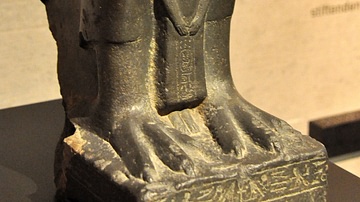
Image
Horus & Nectanebo II
In this greywacke statue, the god Horus (depicted as a falcon; head is lost) protects the praying figure of Nectanebo II. From Memphis, Egypt. 30th Dynasty, circa 350 BCE. (State Museum of Egyptian Art, Munich, Germany).